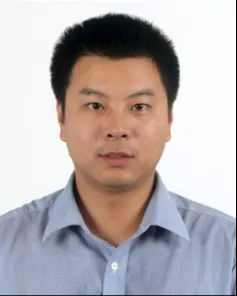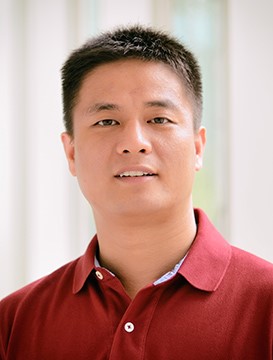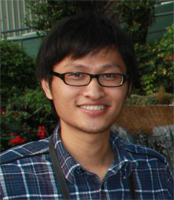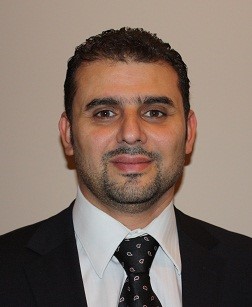| Oral 1: Detection and Localization |
8:30 - 8:50 AM |
PBG-NET: Object Detection with a
Multi-feature and Iterative CNN Model |
|
| Yingxin
Lou (Beijing University of Posts and Telecommunications, China) |
|
| Guangtao
Fu (Academy of Broadcasting Science, China) |
|
| Zhuqing
Jiang (Beijing University of Posts and Telecommunications, China) |
|
| Aidong
Men (Beijing University of Posts and Telecommunications, China) |
|
| Yun
Zhou (Academy of Broadcasting Science, China) |
|
| 8:50 - 9:10 AM |
Locally Optimal Detection of
Adversarial Inputs to Image Classifiers |
|
| Pierre
Moulin (University of Illinois, USA) |
|
| Amish
Goel (University of Illinois, USA) |
|
| 9:10 - 9:30 AM |
Spatiotemporal Utilization of
Deep Features for Video Saliency Detection |
|
| Trung-Nghia
Le (National Institute of Informatics & SOKENDAI, Japan) |
|
| Akihiro
Sugimoto (National Institute of Informatics, Japan) |
|
| 9:30 - 9:50 AM |
Hierarchical Pedestrian
Attribute Recognition Based on Adaptive Region Localization |
|
| Chunfeng
Yao (Huawei Technologies, China) |
|
| Bailan
Feng (Huawei Technologies, China) |
|
| Defeng
Li (Huawei Technologies, China) |
|
| Jian
li (Huawei Technologies, China) |
|
| Keynote Session 1 |
09:50 - 10:30 AM |
Unsupervised
Incremental Learning of Deep Descriptors from Video Streams |
|

Prof. Alberto Del
Bimbo |
|
| University
of Florence, Italy |
|
| Bio:
Prof. Del Bimbo is Full Professor at the Department of Information
Engineering of University of Firenze, where he serves as Director of
MICC-Media Integration and Communication Center. He was President of the
Foundation for Research and Innovation, Deputy-Rector for Research and
Innovation and Director of the Department of Systems and Computer Science.
Prof. Del Bimbo leads a research team at the Media Integration and
Communication Center investigating cutting-edge solutions in the fields of
computer vision, multimedia content analysis, indexing and retrieval, and
advanced multimedia and multimodal interactivity. He is the author of over
350 publications that were published in some of the most prestigious journals
and conferences. He has been the coordinator of many research and industrial
projects at the international and national level. |
|
| He
provided services to the scientific community having been, among the others,
the Program Chair of the Int'l Conferences on Pattern Recognition ICPR 2016,
and ICPR 2012, and ACM Multimedia 2008, and the General Chair of the European
Conference on Computer Vision ECCV 2012, the ACM Int'l Conference on
Multimedia Retrieval ICMR 2011, ACM Multimedia 2010, and IEEE ICMCS 1999, the
Int'l Conference on Multimedia Computing & Systems. |
|
| Presently,
he is the Editor in Chief of ACM TOMM Transactions on Multimedia Computing,
Communications, and Applications and Associate Editor of Multimedia Tools and
Applications, Pattern Analysis and Applications journals. He was Associate
Editor of IEEE Transactions on Pattern Analysis and Machine Intelligence and
IEEE Transactions on Multimedia and also served as the Guest Editor of many
Special Issues in highly ranked journals. |
|
| Prof.
Del Bimbo is IAPR Fellow and the recipient of the 2016 ACM SIGMM Award for
Outstanding Technical Contributions to Multimedia Computing, Communications
and Applications. |
|
| Abstract:
We present a novel unsupervised method for face identity learning from video
sequences. The method exploits the ResNet deep network for face detection and
VGGface fc7 face descriptors together with a smart learning mechanism that
exploits the temporal coherence of visual data in video streams. We present a
novel feature matching solution based on Reverse Nearest Neighbour and a
feature forgetting strategy that supports incremental learning with memory
size control, while time progresses. It is shown that the proposed learning
procedure is asymptotically stable and can be effectively applied to relevant
applications like multiple face tracking. |
|
| |
10:30 - 11:00 AM |
Coffee break |
|
| Oral 2:Search and Applications |
11:00 - 11:20 AM |
Image Search
Re-ranking with an Improved Visualrank Algorithm and Multi-layer DCNN
Features |
|
| Ai
Wei (University of Science and Technology of China, China) |
|
| Xinmei
Tian (University of Science and Technology of China, China) |
|
| 11:20 - 11:40 AM |
Analysis and Prediction of
"Yuru-chara" Mascot Popularity Using Visual and Auditory Features |
|
| Yuri
Nakasato (Tokyo University of Agriculture and Technology, Japan) |
|
| Toshihisa
Tanaka (Tokyo University of Agriculture and Technology, Japan) |
|
| 11:40 - 12:00 AM |
Why My Photos Look Sideways or
Upside Down? Detecting Canonical Orientation of Images using Convolutional
Neural Networks |
|
| Kunal
Swami (SamsungR&D Institute-Bangalore, India) |
|
| Pranav
Deshpande (SamsungR&D Institute-Bangalore, India) |
|
| Gaurav
Khandelwal (SamsungR&D Institute-Bangalore, India) |
|
| Ajay
Vijayvargiya (SamsungR&D Institute-Bangalore, India) |
|
| 12:00 - 12:20 PM |
Learning Spatial-temporal
Consistent Correlation Filter for Visual Tracking |
|
| Han
Lou (Beijing University of Posts and Telecommunications, China) |
|
| Dongfei
Wang (Academy of Broadcasting Science, China) |
|
| Zhuqing
Jiang (Beijing University of Posts and Telecommunications, China) |
|
| Aidong
Men (Beijing University of Posts and Telecommunications, China) |
|
| Yun
Zhou (Academy of Broadcasting Science, China) |
|
| 12:20 - 12:40 PM |
Deep Hashing with Mixed
Supervised Losses for Image Search |
|
| Dawei
Liang (Peking University, China) |
|
| Ke
Yan (Peking University, China) |
|
| Wei
Zeng (Peking University, China) |
|
| Yaowei
Wang (Beijing Institute of Technology, China) |
|
| Qingsheng
Yuan |
|
| Xiuguo
Bao |
|
| Yonghong
Tian (Peking University, China) |
|
| |
12:40 - 13:40 PM |
Lunch break |
|
| Keynote Session 2 |
13:40 - 14:20 AM |
Video Content Analysis with Deep
Learning |
|
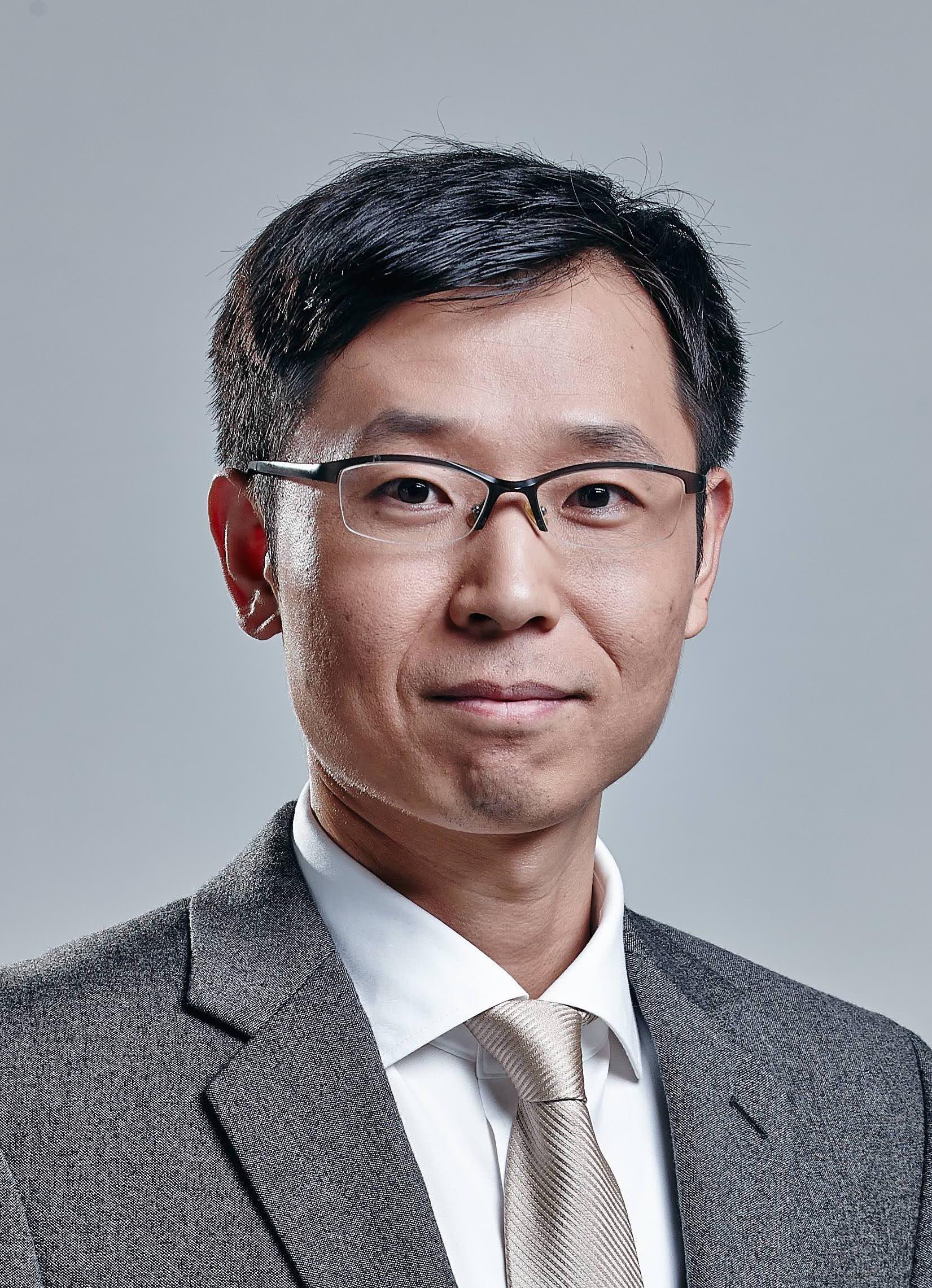
Prof. Yu-Gang Jiang |
|
| Fudan
University, China |
|
| Bio:
Yu-Gang Jiang is a Full Professor in School of Computer Science and Vice
Director of Shanghai Engineering Research Center for Video Technology and
System at Fudan University, China. His Lab for Big Video Data Analytics
conducts research on all aspects of extracting high-level information from
big video data, such as video event recognition, object/scene recognition and
large-scale visual search. He is the lead architect of a few best-performing
video analytic systems in worldwide competitions such as the annual U.S. NIST
TRECVID evaluation. His work has led to many awards, including "emerging
leader in multimedia" award from IBM T.J. Watson Research in 2009, early
career faculty award from Intel and China Computer Federation in 2013, the
2014 ACM China Rising Star Award, and the 2015 ACM SIGMM Rising Star Award.
He holds a PhD in Computer Science from City University of Hong Kong and
spent three years working at Columbia University before joining Fudan in
2011. |
|
| Abstract:
Nowadays people produce a huge number of videos. Many of them are uploaded to
the Internet on social media sites. There is a strong need to develop
automatic solutions for analyzing the contents of these videos. Potential
applications of such techniques include effective video content management
and retrieval, open-source intelligence analysis, etc. In this talk, I will
introduce our recent works on video content analysis. I will start by
introducing a few recently constructed Internet video datasets. After that I
will introduce several recent approaches developed in my group, with a focus
on deep learning based methods tailored for video analysis. |
|
| 14:20 - 15:00 PM |
Deep Prediction and Understanding of the Real World on Social Media
|
|

Prof.
Wen-Huang Cheng |
|
| CITI, Academia Sinica |
|
| Bio:
Wen-Huang Cheng received the B.S. and M.S. degrees in computer science and information engineering from National Taiwan University, Taipei, Taiwan, in 2002 and 2004, respectively, where he received the Ph.D. (Hons.) degree from the Graduate Institute of Networking and Multimedia in 2008. He is an Associate Research Fellow (Associate Professor) with the Research Center for Information Technology Innovation (CITI), Academia Sinica, Taipei, Taiwan, where he is the Founding Leader with the Multimedia Computing Laboratory (MCLab), CITI, and an Associate Research Fellow with a joint appointment in the Institute of Information Science. Before joining Academia Sinica, he was a Principal Researcher with MagicLabs, HTC Corporation, Taoyuan, Taiwan, from 2009 to 2010. His current research interests include multimedia content analysis, multimedia big data, deep learning, computer vision, mobile multimedia computing, social media, and human computer interaction. He has received numerous research awards, including the 2016 Y. Z. Hsu Scientific Paper Award, the 2015-2016 Presidential Achievement Award of Rotary International, the Outstanding Youth Electrical Engineer Award from the Chinese Institute of Electrical Engineering in 2015, the Top 10% Paper Award from the 2015 IEEE International Workshop on Multimedia Signal Processing, the Outstanding Reviewer Award from the 2015 ACM International Conference on Internet Multimedia Computing and Service, the Prize Award of Multimedia Grand Challenge from the 2014 ACM Multimedia Conference, the K. T. Li Young Researcher Award from the ACM Taipei/Taiwan Chapter in 2014, the Outstanding Young Scholar Awards from the Ministry of Science and Technology in 2014 and 2012, the Outstanding Social Youth of Taipei Municipal in 2014, the Best Reviewer Award from the 2013 Pacific-Rim Conference on Multimedia, and the Best Poster Paper Award from the 2012 International Conference on 3D Systems and Applications. He is APSIPA Distinguished Lecturer. |
|
| Abstract:
People are interested in predicting the future. For example, which films will bomb or who will win the upcoming Grammy awards? Making predictions about the future is not only fun matters but can bring real value to those who correctly predict the course of world events, such as which stocks are the best purchases for short-term gains. Predictive analytics is thus a field that has attracted major attention in both academia and the industry. As social media has become an inseparable part of modern life, there has been increasing interest in research of leveraging and exploiting social media as an information source for inferring rich social facts and knowledge. In this talk, we will start by addressing an interesting and challenging problem in social media research, i.e., predicting social media popularity. We demonstrative the use of deep learning techniques to discover which image posts on social media are the “stars of tomorrow”, those will be the most engaging for social media audiences, e.g., receiving the most likes. Also, advanced applications, e.g., street fashion understanding of a city, will be presented. | sssss
|
| |
15:00 - 15:30 PM |
Coffee break |
|
| Poster Session |
15:30 - 16:30 PM |
MFC: A Multi-scale Fully
Convolutional Approach for Visual Instance Retrieval |
|
| Jiedong
Hao* (Institute of Automation, Chinese Academy of Sciences) |
|
| Wei
Wang (Institute of Automation, Chinese Academy of Sciences) |
|
| Jing
Dong (Institute of Automation, Chinese Academy of Sciences) |
|
| Tieniu
Tan (Institute of Automation, Chinese Academy of Sciences) |
|
| Solar
Radio Spectrum Classification with LSTM |
|
| Xuexin
Yu (Chinese Academy of Sciences) |
|
| Long
Xu* (Chinese Academy of Sciences) |
|
| Lin Ma
(Tecent AI Lab) |
|
| Zhuo
Chen (Chinese Academy of Sciences) |
|
| Yihua
Yan (Chinese Academy of Sciences) |
|
| Supervised
Deep Quantization for Efficient Image Search |
|
| Dongbao Yang* (Shandong
University,Weihai) |
|
| Hongtao
Xie (Institute of Information Engineering, Chinese Academy of Sciences,
China) |
|
| Jian Yin (Shandong
University , Weihai) |
|
| yizhi
Liu (Hunan University of Science and Technology, Xiangtan) |
|
| Chenggang
Yan (Institute of Information and Control,Hangzhou Dianzi University,
Hangzhou,China) |
|
| Image
Blur Classification and Blur Usefulness Assessment |
|
| Mingyuan
Fan (Tianjin University) |
|
| Rui
Huang* (Tianjin University) |
|
| Wei
Feng (Tianjin University) |
|
| jizhou
Sun (Tianjin University) |
|
| PU-LP: A
Novel Approach for Positive and Unlabeled Learning by Label Propagation |
|
| Shuangxun
Ma (Lanzhou University) |
|
| Ruisheng
Zhang* (Lanzhou University) |
|
| Center
Contrastive loss regularized CNN for tracking |
|
| Ningning
Li* (BUPT) |
|
| Yun
Zhou (ABS) |
|
| Zhuqing
Jiang (BUPT) |
|
| Xiaoqiang
Guo (ABS) |
|
| Inception
Single Shot MultiBox Detector for object detection |
|
| Chengcheng
Ning (Nanjing University of Science and Technology) |
|
| Huajun
Zhou (Nanjing University of Science and Technology) |
|
| Yan
Song* (Nanjing University of Science and Technology) |
|
| Jinhui
Tang (njust) |
|
| Two-layer
Video Fingerprinting Strategy for Near-duplicate Video Detection |
|
f
| Xiushan
Nie* (Shandong University) |
|
| Weizhen
Jing (Shandong University) |
|
| Linyuan
Ma (Shandong University of Finance and Economics) |
|
| Chaoran
Cui (Shandong University) |
|
| Yilong
Yin (Shandong University) |
|
| CRF
Estimation Based HDR Image Generation Method |
|
| Yongqing
Huo* (University of Electronic Science and Technology of China) |
|
| Xudong Zhang (University of
Electronic Science and Technology of China) |
|
| Deep
Saliency Quality Assessment Network |
|
| Liangzhi
Tang* (University of Electronic Scie) |
|
| Qingbo
Wu (University of Electronic Scie) |
|
| Wei Li
(University of Electronic Scie) |
|
| Yinan
Liu (University of Electronic Scie) |
|
| Frame-Skip
Convolutional Neural Networks for Action Recognition |
|
| Yinan
Liu* (University of Electronic Science and Technology of China) |
|
| Qingbo
Wu (University of Electronic Science and Technology of China) |
|
| Liangzhi
Tang (University of Electronic Science and Technology of China) |
|
| Deep Hash Learning for Efficient Image
Retrieval |
|
| Xuchao Lu (Shanghai Jiaotong University) |
|
| Li Song* (Shanghai Jiaotong University) |
|
| Rong Xie (Shanghai Jiaotong University) |
|
| Xiaokang Yang (Shanghai Jiaotong University) |
|
| Wenjun Zhang (Shanghai Jiaotong University) |
|
|
|
|
|

